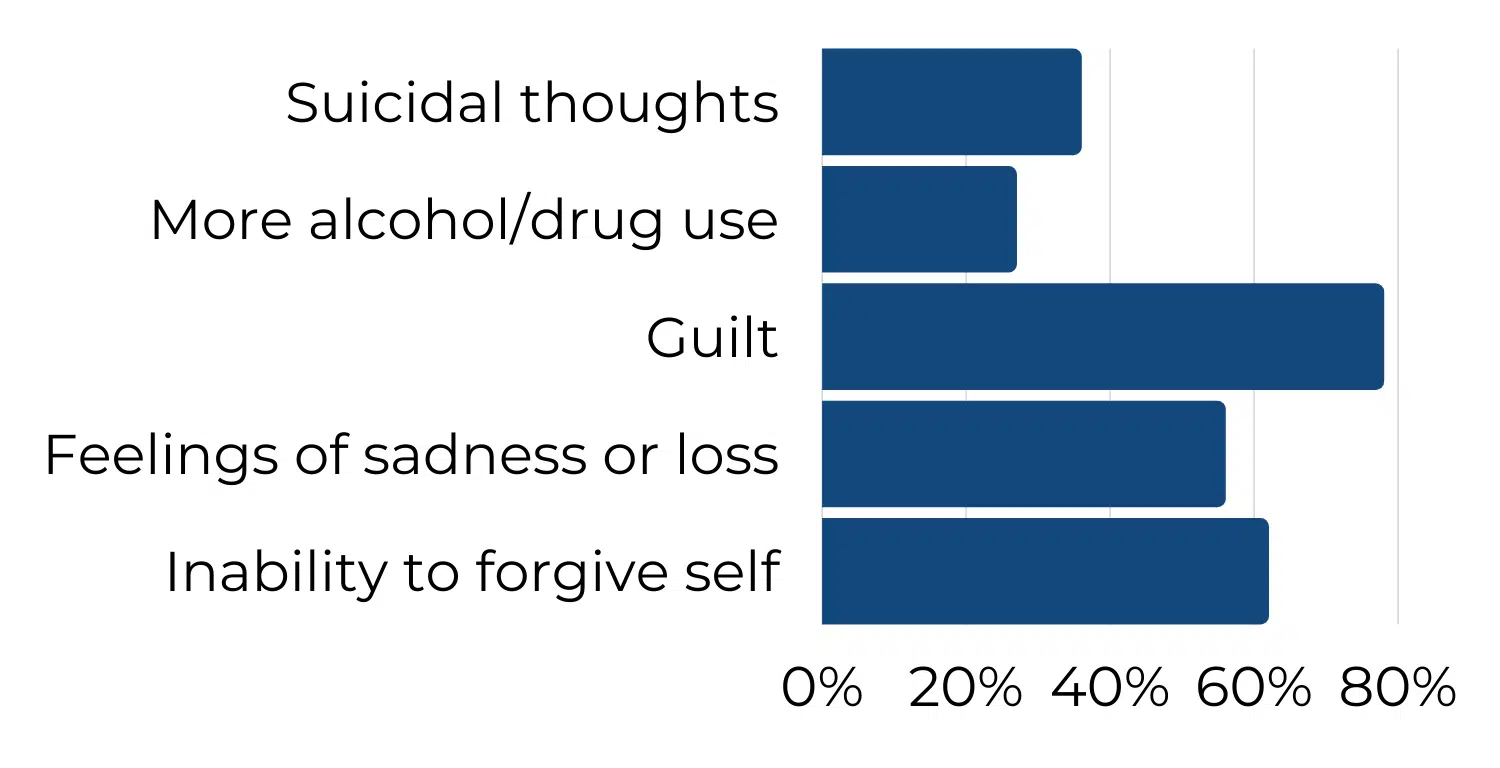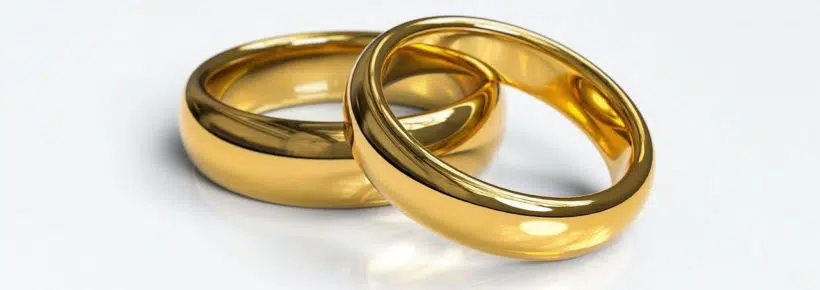You recently found out that you’re expecting a baby, and though this should be a joyful time, you find that it is anything but. You have argued with your partner. You have cried. You have told him that you want the baby, but he wants you to have an abortion. You feel pulled on all sides and don’t know what to do.
That stress is not uncommon. We want you to know that you are not alone. You do not have to succumb to his pressure. And there is help out there.
He may try to tell you that it’s your choice and your body, but you see, when you’re pregnant – no matter which stage that is in – it is no longer just your body. The moment his sperm fertilized your eggs, a new and unique human being came into existence. With the creation of this baby, you are a mother.
Yet, because of your partner’s pressure, having an abortion may seem like your only “choice.” But this isn’t really a choice at all.
You may know that a baby is always blessing, even if you feel unprepared. But you’re living in a nightmare where your partner seems to voice every reason that abortion is the best “choice.” Maybe he’s using verbal coercion and threatening to hurt you. Maybe he’s employing psychological threats or manipulation, such as saying he will leave you if you keep the baby. Or maybe he has even become physically abusive.
None of these actions is okay; no one should ever pressure you to take the life of your child. You and your baby have value, and you deserve better.
We don’t tell you this to scare you or hurt you but to explain the wrongness of his actions and to help you see that there is not only hope but help.
Every abortion takes the life of a preborn baby. Abortion regret is real, and oftentimes moms suffer psychologically, physically, or both. Don’t take our word for it; listen to some moms who have felt pressured.
Personal Testimonials
Sadly, a quick Internet search finds an endless list of sites dedicated to the stories of women who felt pressured to abort and who did not want to. Sometimes, the mom feels the emotional pain and guilt immediately after the abortion. And sometimes it takes 10, 20, 30, or even 40 years to manifest.
But post-abortion pain and regret are real. And the psychological effects cannot be ignored. Discussing a study that used data from the National Longitudinal Survey of Adolescent to Adult Health, Michael New wrote: “Any abortion increased the risk of depression, anxiety, or suicidality, but the risk was much higher following an abortion of one or more wanted pregnancies.”
In 2014, the Elliot Institute released a report entitled Forced Abortion in America. The report found that “64% of women reported feeling pressured to abort” and that “most [women] felt rushed or uncertain, yet 67% weren’t counseled.” It went on to say that a whopping 79% of the women were not told about resources that could help them through the pregnancy. It further found that clinics rarely screen for coercion and that 65% of women suffer symptoms of trauma after an abortion.
The website Abortion Testimonials offers pages upon pages of testimonies from women sharing their regrets after abortion. As one reads through these stories, it’s easy to find stories of those women who felt pressured into it. Many knew abortion was wrong but did it anyway. These women wanted their babies, but they felt helpless. They felt scared. They felt alone and powerless. They did not know how to convince their husband or boyfriend of the value of the baby.
For instance, one woman wrote:
He apologized for forcing me into it and said he knew he was coercing me, but if I didn’t have the abortion he would never see me again or marry me. I told him I was afraid of going to hell and that we had the financial means and there was really no excuse but that made no difference to him. It was do this or lose him and I was young and dumb enough to think he was more important.
Another woman said that the Dobbs case brought back the pain of a past abortion. Her husband at the time told her she had to abort. She wrote:
I was married, realized I was pregnant, and never expected the reaction I got from my husband. He wasn’t happy, said we couldn’t afford a baby and that I would have to get rid of it. I was heartbroken but I remember feeling I didn’t want the baby if he didn’t want it. I was only 22 years old, what should have been an exciting joyous occasion turned into a nightmare. I scheduled the appointment at 9 weeks pregnancy, my husband came with me. I was numb, very quiet….The experience was horrific as they used suction attached to a tube to drag everything out of my uterus and into the utility sink. All I saw was blood everywhere….I quickly drowned myself into drugs for years afterwards. It was like I lost my soul.
The heartbreaking stories go on and on. And that is just on this one site.
Coercion happens more than we can imagine. Women desperately want their babies. Yet they feel that they have no choice. They feel trapped in relationships built on selfishness rather than selflessness, in relationships built on the man’s power rather than on mutual love.
It’s interesting to note that none of these couples stayed together for long after the abortion. The relationship simply couldn’t weather the death of their children.
Abortion Will Not Save Your Relationship
We know that abortion affects relationships. And we know that, when your partner is attempting to coerce you into having an abortion, something is fundamentally wrong with that relationship. Statistics show that many relationships do not last after a man has coerced his wife or girlfriend into having an abortion. Yet, one of the reasons that women agree to have an abortion is to “save” the relationship. They somehow think that things will go back to normal if they “get rid” of the “problem.”
However, for many couples, abortion only introduces a new set of problems.
In 2015, the Linacre Quarterly published a study entitled “The Influence of Contraception, Abortion, and Natural Family Planning on Divorce Rates as Found in the 2006-2010 National Survey of Family Growth.” The study found that “Contraceptive use, sterilization, and abortion seem to have a destructive effect on the marital bond.” Though this study lumped abortion in with other “family planning” services, it still found that “abortion, sterilization, and methods of contraception increase the likelihood of divorce compared to ever married women who have never used these methods of family planning from one to two times the risk of divorce.”
Another study reports on Russian and American women who had abortions and what that abortion did to the relationship. According to the study, many women claim abortion damaged their relationships; 6.8% of Russian women and 26.7% of American women had post-abortion relationship problems. Furthermore, 7.8% of Russians and 19.8% of Americans blamed abortion for ending their relationships.
The deVeber Institute for Bioethics and Social Research reports:
After an abortion, the rate of marital breakups and relationship dissolution is anywhere from 40 to 75 per cent, often related to the breakdown of intimacy and trust. In addition, many women experience depression, guilt, and anger related to feelings of having been let down by their partner which, in turn, lead to communication problems and, frequently, sexual dysfunction. If their partners have manipulated or coerced them into having an abortion, women tend to feel angry and betrayed and men, typically, feel a loss of control and pride especially if they were not consulted.
It is very difficult to move past feeling coerced into an abortion. This is why so many organizations exist to help you keep your baby. They provide the necessary services, so you and your baby not only survive but thrive.
Crisis Pregnancy Centers Provide Necessary Services
There are literally thousands of crisis pregnancy centers throughout the United States. There are places staffed by compassionate and loving people who truly care about you and your baby.
Further, organizations like True Care Women’s Center, Heartbeat International, Save the Storks, Care Net, and many, many more help women just like you every day.
Pregnancy help centers and other nonprofit organizations geared for pregnant moms offer services that range from ultrasounds to adoption information to counseling. You can receive free pregnancy supplies such as diapers and clothing for your baby. Many will offer assistance with groceries and bills. In addition, these places can refer you to maternity homes where you and your baby can stay if you have nowhere else to go. These homes are indispensable if you have been kicked out of a shared home or if you do not have the resources to pay the bills.
You do not have to go through your pregnancy alone. And you do not have to abort your baby.
Final Thoughts
If your partner wants you to abort, it is important that you speak up for both yourself and your baby. Talk to your partner about the humanity of the baby. Explain that this is a unique human being you both created. Seek counseling from a priest or a Christian therapist.
If you feel coerced into having an abortion, know that the law is on your side. According to the Justice Foundation, “Forcing a woman to have an abortion, including a minor, is illegal in all 50 states of the United States of America.” The site offers a wealth of information to help you if you find yourself in this situation.
And if your partner adamantly refuses to remain a father, you do have a choice. You are strong and capable and can do this without him. Seek the help of a pregnancy resource center and know that they love you and your baby and want him or her to be born and live a good life.
This article was originally published in July 2021 by Susan Ciancio and most recently updated in July 2023.
Related Content
Susan Ciancio has a BA in psychology and a BA in sociology from the University of Notre Dame, with an MA in liberal studies from Indiana University. Since 2003, she has worked as a professional editor and writer, editing both fiction and nonfiction books, magazine articles, blogs, educational lessons, professional materials, and website content. Fourteen of those years have been in the pro-life sector. Currently Susan writes weekly for HLI, edits for American Life League, and is the editor of its Celebrate Life Magazine. She also serves as executive editor for the Culture of Life Studies Program, an educational nonprofit program for k-12 students.

















A great resource with helpful info!!!